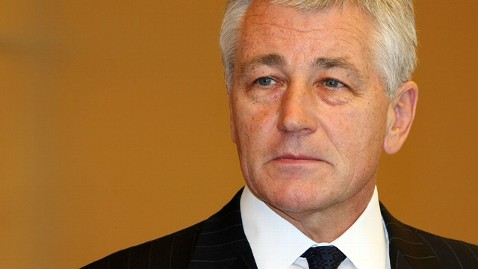CHICAGO (AP) — Roll up a sleeve for the blood pressure cuff. Stick out a wrist for the pulse-taking. Lift your tongue for the thermometer. Report how many minutes you are active or getting exercise.
Wait, what?
If the last item isn't part of the usual drill at your doctor's office, a movement is afoot to change that. One recent national survey indicated only a third of Americans said their doctors asked about or prescribed physical activity.
Kaiser Permanente, one of the nation's largest nonprofit health insurance plans, made a big push a few years ago to get its southern California doctors to ask patients about exercise. Since then, Kaiser has expanded the program across California and to several other states. Now almost 9 million patients are asked at every visit, and some other medical systems are doing it, too.
Here's how it works: During any routine check of vital signs, a nurse or medical assistant asks how many days a week the patient exercises and for how long. The number of minutes per week is posted along with other vitals at the top the medical chart. So it's among the first things the doctor sees.
"All we ask our physicians to do is to make a comment on it, like, 'Hey, good job,' or 'I noticed today that your blood pressure is too high and you're not doing any exercise. There's a connection there. We really need to start you walking 30 minutes a day,'" said Dr. Robert Sallis, a Kaiser family doctor. He hatched the vital sign idea as part of a larger initiative by doctors groups.
He said Kaiser doctors generally prescribe exercise first, instead of medication, and for many patients who follow through that's often all it takes.
It's a challenge to make progress. A study looking at the first year of Kaiser's effort showed more than a third of patients said they never exercise.
Sallis said some patients may not be aware that research shows physical inactivity is riskier than high blood pressure, obesity and other health risks people know they should avoid. As recently as November a government-led study concluded that people who routinely exercise live longer than others, even if they're overweight.
Zendi Solano, who works for Kaiser as a research assistant in Pasadena, Calif., says she always knew exercise was a good thing. But until about a year ago, when her Kaiser doctor started routinely measuring it, she "really didn't take it seriously."
She was obese, and in a family of diabetics, had elevated blood sugar. She sometimes did push-ups and other strength training but not anything very sustained or strenuous.
Solano, 34, decided to take up running and after a couple of months she was doing three miles. Then she began training for a half marathon — and ran that 13-mile race in May in less than three hours. She formed a running club with co-workers and now runs several miles a week. She also started eating smaller portions and buying more fruits and vegetables.
She is still overweight but has lost 30 pounds and her blood sugar is normal.
Her doctor praised the improvement at her last physical in June and Solano says the routine exercise checks are "a great reminder."
Kaiser began the program about three years ago after 2008 government guidelines recommended at least 2 1/2 hours of moderately vigorous exercise each week. That includes brisk walking, cycling, lawn-mowing — anything that gets you breathing a little harder than normal for at least 10 minutes at a time.
A recently published study of nearly 2 million people in Kaiser's southern California network found that less than a third met physical activity guidelines during the program's first year ending in March 2011. That's worse than results from national studies. But promoters of the vital signs effort think Kaiser's numbers are more realistic because people are more likely to tell their own doctors the truth.
Dr. Elizabeth Joy of Salt Lake City has created a nearly identical program and she expects 300 physicians in her Intermountain Healthcare network to be involved early this year.
"There are some real opportunities there to kind of shift patients' expectations about the value of physical activity on health," Joy said.
NorthShore University HealthSystem in Chicago's northern suburbs plans to start an exercise vital sign program this month, eventually involving about 200 primary care doctors.
Dr. Carrie Jaworski, a NorthShore family and sports medicine specialist, already asks patients about exercise. She said some of her diabetic patients have been able to cut back on their medicines after getting active.
Dr. William Dietz, an obesity expert who retired last year from the Centers for Disease Control and Prevention, said measuring a patient's exercise regardless of method is essential, but that "naming it as a vital sign kind of elevates it."
Figuring out how to get people to be more active is the important next step, he said, and could have a big effect in reducing medical costs.
___
Online:
Exercise: http://1.usa.gov/b6AkMa
___
AP Medical Writer Lindsey Tanner can be reached at http://www.twitter.com/LindseyTanner










